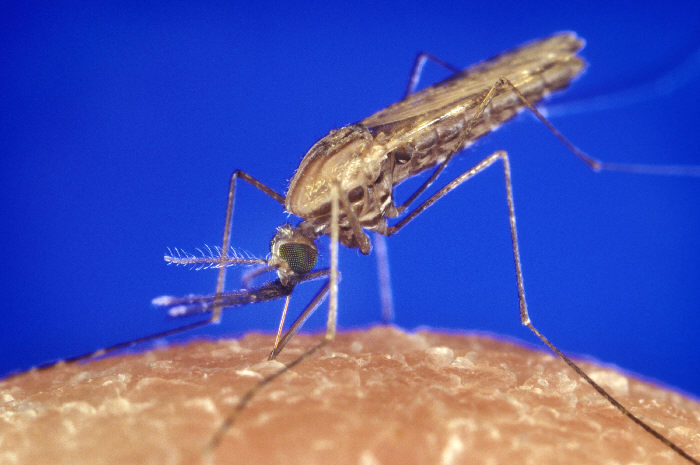A recent study found that exposing Anopheles mosquitoes to antimalarial drugs may inhibit life-threatening, malaria-spreading parasites from spreading the disease.
Malaria is a disease caused by plasmodium parasites that affect humans bitten by infected Anopheles mosquitoes. Without treatment, the resulting infection can be fatal.

Image: James Gathany – CDC
Despite much of the work and research that goes into trying to manage malaria, many mosquito species have developed a resistance to insecticides used to reduce the population of certain Anopheles mosquitoes, whose females transmit parasites when they come into contact with and bite humans to draw blood as part of their egg-laying process.
The most deadly of the parasites transmitted via Anopheles mosquitoes are Plasmodium falciparum and Plasmodium vivax, but new research suggests that exposure to antimalarial drugs in insecticides can be effective for controlling the transmission of these parasites.
In an article published in the scientific journal Nature, researchers exposed Anopheles gambiae mosquitoes to surfaces (similar to insecticide nets) covered in insecticides with low dosages of certain antimalarial drugs for a few minutes. Thereafter the mosquitoes were allowed to feed on malaria-infected blood.
When dissected later, the majority of the mosquitoes (80%) were found to show no traces of the P. falciparum parasite inside them, suggesting that antimalarial drugs can have transmission-blocking effects when applied to the actual vectors or carriers of the parasites – the mosquitoes themselves.
Malaria is prevalent in Africa as the climate and vegetation in many regions provide an environment conducive to survival and a longer lifespan of the Anopheles species, which thrive in wetland environments.
Since 2017 the World Health Organization (WHO) documented about 219 million cases of malaria in 87 countries, and about 435,000 deaths as a result of infection that year.
Malaria is a big problem in sub-Saharan Africa and on the continent, and WHO identifies the most high-risk countries for contracting malaria as Burkina Faso, Cameroon, the Democratic Republic of Congo, Ghana, Mali, Mozambique, Niger, Nigeria, Uganda, Tanzania and in Asia, India.

















